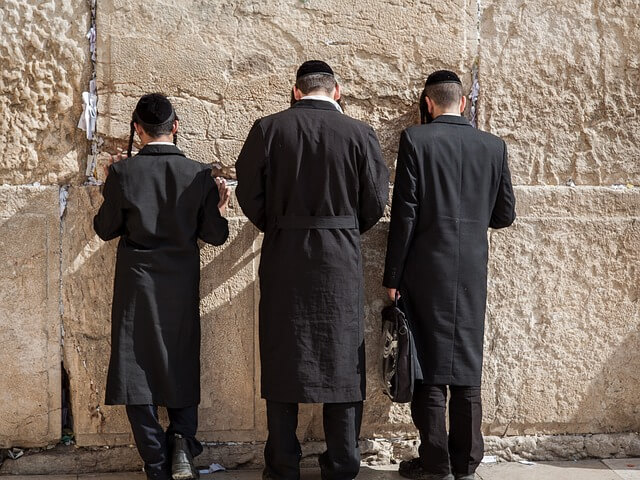Their fasting was meaningless. Wait….what?
When the Israelites first went into captivity, they instituted memorial days of fasting:
- They mourned the capture of Jerusalem (Jer 52:6-30)
- They mourned and fasted on the day remembering the burning of Jerusalem and the destruction of the temple (2 Kgs 25:2-10)
- They mourned on the day of the assassination of Gedaliah (Jer 41:1-10)
- They mourned and fasted to remember the beginning of Nebuchadnezzar’s seige against Jerusalem (2 Kgs 25:1)
For 70 years they commemorated these days with mourning and fasting. They were solemn occasions, at least in the minds of those remembering.
So now the Israelites were back in Jerusalem. They had fasted because of the destruction of the temple for 70 years. But now what are they to do?
A delegation was sent to the priests. They asked them to ask the LORD if they should still fast? Or was the time of fasting finished now that they were back in the land and dabbling with rebuilding the temple?
It seemed like an innocent enough question. Except God knew their hearts. And he said something shocking.
‘When you fasted and mourned in the fifth and seventh month for the past seventy years, was it really for me that you fasted?” (v. 5).
That was a slap in the face. God was literally telling them that the last 70 years of fasting were pointless.
After they caught themselves, the LORD continued. He explained to them as he had done previously in Isaiah.
Their fasting was not about feeling contrition for their sin and walking in repentance as this type of fast was supposed to be. No. They fasted because they lost their land and the temple. They weren’t really repentant of the things that caused them to lose their land. They were fasting for the sake of lost benefits.
How do we know this? Because we read it throughout the prophets. God says the day of fasting is about repenting of sin and loving your neighbor. But they were doing the opposite. For 70 years they had fasted and then turned right around and did evil to their brother through committing sins against them, or for doing nothing for their neighbor. The LORD says this:
“Administer true justice; show mercy and compassion to one another. Do not oppress the widow or the fatherless, the alien or the poor. In your hearts do not think evil of each other” (v. 10).
That last phrase caught me off guard. How do you not think evil of those who are doing evil? But then I dug a little deeper and the phrase means to plot to undermine or do harm to your neighbor.
The LORD goes on to tell them that the whole reason that they went into captivity was because they were not doing these things. They were not showing justice, they did not show mercy or kindness to one another. They took advantage of the widow and the fatherless, the alien and the poor. In their hearts they justified doing wrong to others when at the root was power, pride, profit and perversion.
He says to them what’s the point if you fast every year for 70 years and you continue to do the same things that actually sent you into captivity into the first place? This is what matters.
They came in their self-righteousness to talk about their fasting and the place of the temple. Instead God spoke to them about their hearts and about doing what was right. The worship in the temple only matters if they were living righteously.
The same could be said today. If we go to church but disregard justice, have no compassion or mercy on others, and we oppress those in need by the choices we make, why? Worship that God accepts is worship with a pure heart and clean hands. That we walk rightly with one another and care for those in need.



